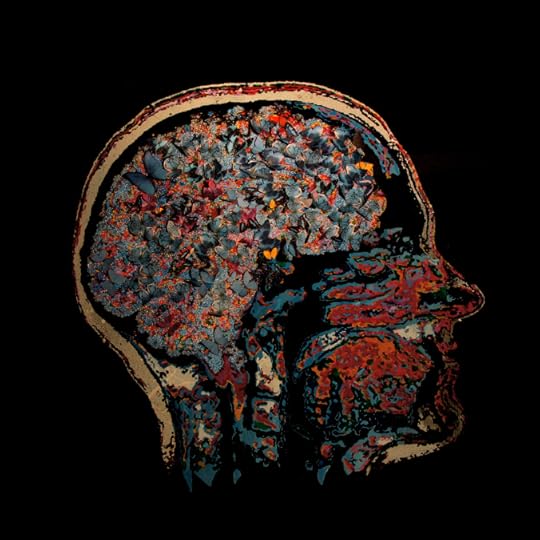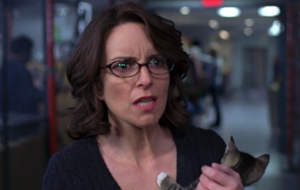Kelly Barnhill's Blog, page 2
February 25, 2015
Seriously, guys. How do teachers do this every day?
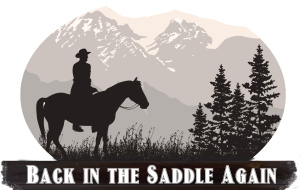
Boots: check.
Lasso: check.
Yodel: check.
Folks, this week, I’m back in the classroom again. Cue music.
As many of you know, I am a former full-time teacher (Middle School, natch. And I have the scars to prove it) (I’m just kidding. Middle School kids are puppy dogs with fairy wings and butterfly kisses. For real.), and now, in addition to my writing work, from time to time I return to the classroom to teach fiction writing for a week with eager, energetic, enthusiastic, and oh, good god,��tiring children.
I’m so tired right now. I can barely see straight. I may melt into the floor.
With each class today, I stood in front of these kids and poured my energy out so they could pour that same energy onto the page. That’s what I do – pour and flow, crackle and burn, light the room, hold their attention in the palm of my hands, and set their stories ablaze. They were maniacs today. Story-writing maniacs. They wrote stories with spies in them and stories with aliens in them and stories with best friends in them and stories with soldiers in them and stories about jury duty and super heroes and cranial implants and stories narrated by an arthritic dog. And they were awesome.
Since this is not my regular classroom and these are not my regular kids, I can’t rely on the relational foundation that most teachers use to keep their classrooms going. These kids don’t know me. So the only way I can get them to lose their inhibitions long enough to get their stories written down is to do my little magic tricks on my makeshift stage.
“Look here,” I say. “Storytelling is ancient.”
“And here,” I say. “Stories are an integral part of your humanity. We tell stories, therefore we��are.”
“Look here,” I say. “Your brain can do tricks. Watch.”
“Look here,” I say. “I can tell you words and turn them into sentences and use those sentences to make your heart beat fast and your breathing go shallow and make all of you sit on the edges of your seats. Look at yourselves! Look at how you’re gripping your chairs. Look at how your knuckles are white. Now you make that happen in your stories.”
“Look here,” I say. “There is a dragon that can fit in your pocket. And a kingdom made of cattails. And a forest with fire in its belly. Look! A witch! Look! A liar! Look! A horde of bandits, smiling in the dark.”
I told them stories. They wrote stories. They read their stories out loud. We postulated and discussed and argued and laughed and made excellent points. I think we’re all exhausted. The kids walked out holding their writing hands limply in makeshift slings.
On my way out to my car today, I literally waded through a sea of Kindergarteners. They swirled and swelled and crashed like waves. They clung to my boots like seaweed. Third graders jostled me from side to side and fourth graders shouted like fog horns in my ears. Fifth graders pulled at my coat sleeves as I left, and sixth graders called me back because I had to listen to the funniest joke. It took me like an hour just to leave.
I love them. I love them so much. But I forget how tiring this work is. I’m sitting on the couch right now and it is so much work just to keep my skeleton from turning into a puddle on the floor. I am a pot boiled dry. I am an empty husk. I am the ashes from yesterday’s campfire. I have no muscles. My skull has shattered. My eyeballs rolled away an hour ago, and I think they’re lodged under the refrigerator. It hurts to breathe.
And I just want to point out that your kids’ teachers do this��every single day.��Every day, they work themselves to the dang bone. Every day they pour out their love and their intellect and their training. Every day they chart a course on your kids’ learning.��You are here, they say, pointing to the map.��And just look at where you are going. Isn’t it wonderful?
Teachers are awesome. And I��know that, of course I do. But I know it even more during my little teaching stints. Where I meet these kids and work with these kids and love these kids, and they inhale every joule of energy in me. They drain my essence. They absorb every ounce of my soul. And I know that for their teachers, this ain’t nuthin. For them, it’s just Wednesday. They pour themselves out every single day. They are inexhaustible wells. And god bless ‘em.
So here’s my challenge for you: Go out and do something nice for a teacher. Any teacher. Buy ‘em a latte. Give ‘em a Target gift card. Write ‘em a note. Do something. Because holy smokes. Do they ever deserve it.
My hat, ladies and gentlemen. It is off.
And now, will someone please bring a hose and an air machine? Because I seem to have deflated. And I need to be re-inflated by tomorrow so I may return to the classroom and teach my heart out once again. ONCE MORE, MY FRIENDS. INTO THE DEEP.
Filed under: Uncategorized Tagged: Creative writing, teaching artist, why I love teaching

February 11, 2015
Good dog. My good, good dog.
Harper, my one thousand year old dog, died last night. My heart is very broken.
By the time you read this, the shell of her body will have transformed: heat and light, vapor and smoke, ash and wind, then wide open air. I miss her. Oh, you guys. I miss her.
The fact is, death is weird. Even when we know it’s coming – and we all know its coming for every living thing, though for some it’s coming faster than others – it still seems sudden. My dog was twenty years old. At least. We have prepared ourselves for her last days on several occasions. Still. This seems sudden. We are not surprised, and yet we are��surprised. And in the face of the most banal fact of life we are wide-eyed, and astonished.
We almost lost her in mid-January. But she rallied. She always rallies. Or she did. Past tense. That’s going to be a hard one. Yesterday morning, I fed her, but she was annoyed at the inadequacy of her dog food. She gave me the stink-eye. “Fine,” I said, and opened another mini-portion of the fancy wet stuff – the one with the picture of the fluffy white, vaguely jerkish-looking dog on the label. Not nearly as cool as my dog is.
Was, I mean. I mean was.
“Be careful,” I said to her. “Someone’s going to think you’re one of those fancy hounds, with assistants and butlers and perhaps having some old guy leaving you their entire fortune in his Will. Is that what you want?”
Harper just stared at me. She never gets my jokes.
Got, I mean.
I took her on a walk before the ice storm hit, and marveled at how well she was doing. How strong she was. “Good dog,” I said. “My good, good dog.” Three weeks ago, she couldn’t even go outside to pee on her own. I had to hoist her in my arms, croon soothing words into her ear, stand her up on the snow and tell her to let it rip. Two weeks ago, I was praising her with all the treats on earth for making it to the end of our half-block and back. And here she was, walking next to me, sniffing every patch of yellow snow, keeping a keen eye out for the occasional squirrel.
There weren’t any squirrels out, though. Not one. They were hunkered down in their dens, waiting for the storm to hit.
When we got to the field behind my house, I took off her leash and let her go. And she��ran. It was the first time I had seen her run since she got sick. I’d seen her scamper on occasion, but never��run. She wasn’t particularly fast, but she was joyful. A vision of fur and nail and clever paws, motion, intention, and the thrill of success. I was so proud of her. “Good dog,” I called over the snow. “My good, good dog.”
We came in, had more snacks, and she took a nap. She spent the rest of the day drinking her water, finding new places to lie down, asking to go out, barking up the neighborhood. A regular day. A good day.
And then last night she had a seizure. A long one. And then she was fuzzy and weak and out of it. And then she was tired. And then she was gone.
And we touched her and talked to her. We read stories. We sang songs. We didn’t really think she’d go. Not really. She always rallies. It’s what Harper��does. “My good, good dog,” we said over and over and over. We had put the kids to bed, but we woke them all back up to say goodbye.
She was��so soft. Had she always been that soft? She must have been. But I couldn’t stop petting her. Even though I knew she was gone. “My pretty girl,” I crooned. “My good, good dog.” After the kids had said their goodbyes and went to bed, we put Harper in the car and drove to the clinic for the last time.
This morning, by instinct, I checked the landing as I went downstairs in the dark, making sure I didn’t accidentally step on her. I chided myself.��She’s gone, I told myself.��Don’t be silly.��And then I had to stop myself from putting food in her bowl. I had to stop myself from opening the back door, knowing that just the sound of the knob would send my Harper running, anxious to get back in her yard. My behavior patterns, the rhythm of my day, were written by my dog. How long before they get over-written? How long before I stop searching for her with my foot while I’m writing, seeking a warm body to warm my toes. She was always there, right next to me.��Always.
My dog was old, loud, stinky and scrappy. She loved her family. She had terrible breath and was sometimes abrasive. She practically raised my kids. She loved camping and hiking and canoeing. When she was at the shore of a lake, she tried to herd the waves. She loved stinky socks and sweaty shirts and sheets that smelled like the kids. She lived longer than most, stayed active longer than most, and was, by all measures, a marvel. And she was a thousand years old. And she built my husband and I into a family.
And I loved her. Oh, you guys.��I loved her so, so much.
Filed under: Uncategorized Tagged: aging, death and dying, Harper my one thousand year old dog, Kids and dogs

January 31, 2015
BRAAAAINS.

Well, this blog has been dark for a bit because I have been fussed about my kid. This is nothing new. I am often fussed about my kids. I am a born fusser.
Two weeks ago, my daughter was downhill skiing – the last run at the end of a long day down a not-so-difficult slope. And she decided to jump on some kind of box or obstacle or whatever, because she felt like being a hot shot. It was a trick she’d done a hundred times. And she face planted on the ice. Hard. She was wearing a helmet, thank goodness, but brains are delicate. Ridiculously so.
My husband brought her home, gash-lipped and swollen-cheeked. The side of her face had swelled to the size of a softball. The cut across her lip was not infected, but it would be soon. And she had a concussion. And I went bananas. Like, I was so anguished at the injuries on my offspring, that I could hardly even see straight. Or think straight. Or even walk straight. I am only just recovering.
The brain is a funny thing – all mush and squish and water. The consistency of tofu. The color of porridge. And yet. It organizes the mechanization of the the organism – powering motion and control, balance and awareness, analysis, planning and synthesis. How is it that something that fragile is responsible for the miracle of thinking, wondering and imagination? How is it that it only takes three pounds of delicate goo to create Calculus? Or write the��Divine Comedy?��Or design the Forbidden City?
My kids are smart. Way smarter than I am or was. And their brains are precious to me. My daughter – math genius, painter, voracious reader, novel writer, aspiring engineer/comic book artist, opera singer – is at this moment in her life when her intelligence and talents are revealing themselves to her. Where she is seeing for the first time what her brain can do and where her brain can take her. Where she is taking ownership of all that she is. And the thought –��the very thought - of a disruption in that was, frankly, frightening to me.
So I started learning about brains.
Did you know, for example, that the brain is 70% water?��Our thoughts are fish, I think.��They are bright schools of flashing fin and scale and eye. They crowd the waves and plunge in the depths and strike out on their own. They have teeth. They have speed and agility. And sometimes they are sharks.
Did you know that the first sense that we develop in utero is not smell, as I have so very often erroneously told my students, but touch? We develop our sense of touch at eight weeks gestation, and the first place we experience touch is on our lips and on our cheeks.��A kiss,��I think.��We are ready to kiss before we can kiss, we are ready to be kissed before we ever see another face. The first thing we kiss is water – just as our thoughts live in water. Our first moment of love and thought is experienced alone.
When awake, the human brain uses about the same amount of energy to power a light bulb. We don’t actually have to be particularly bright in order to do this. Dull and tiresome people are just as shiny. This is good to remember.��Water and light, particle and wave. We are many things at once.��
When we learn something new, the structure of our brains changes. This change is visible on scans.��We are flux. We are change. We are the tides of the ocean and the wandering river. We are water droplets in the air, dispersing and gathering and dispersing again. We are a gathering storm.
When a person is deprived of food, their neurons begin to eat themselves. This can happen very quickly. This is the reason why we become foggy and stupid when we accidentally miss lunch, and why it is a terrible idea to ever go on a diet.��We are cannibals. We are insatiable. We are the Worm Ouroboros, devouring ourselves forever.��
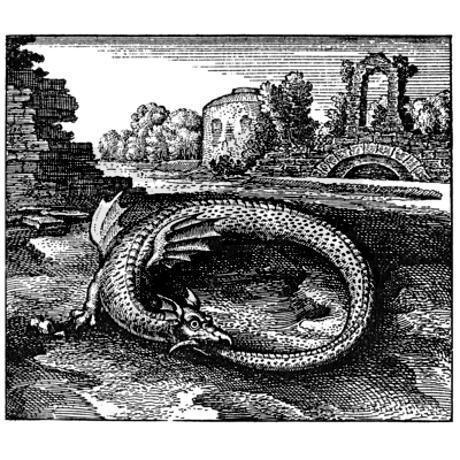
When I took my daughter to the doctor, he did his tests and pronounced a concussion. He gave her a serious look. “Concussions are no joke,” he said. “You need to let yourself turn off for a little while. No school. No homework. No reading. No screens. Just you and a dark room and your eyes on the wall, kiddo. You need to let that brain heal.” He explained what a concussion was and how they worked – how she had two bruises on her brain and not just one – a bruise on the front, and a bruise on the back. He explained that, just like a sprained ankle, the brain heals best in a state of rest.
“Brain rest,” he said. “That’s what they call it. And I’m not going to lie to you: it’s really, really boring. You just have to let yourself do nothing. All day.” She stared at him as though he had asked her to swallow a truck full of sand.
“Can’t I just get a new one?” she asked. “A brain, I mean. Surely you have extra brains in jars, sitting around somewhere.”
The doctor assured her that he did not, but Ella was skeptical. “What’s the point of science if we can’t put our brains in jars and swap them out when we feel like it?”
(She denies saying this, by the way. I assure you that she did. Plus she is an unreliable narrator of her life, currently, because of the concussion. Or, at least she was then. And anyway, this is my blog. So.)

Fortunately, her teachers take concussions seriously, and were extremely amenable to flexibility. They like her brain, too, and were happy to have her stay home and rest. “Better to have her rest at home for an extra day,” one teacher said, “than to send her to school before she’s ready, and have her feel so lousy that she has to go home anyway.”
And so we did. But still I worry. I found out yesterday that she has been carrying her stuff around all week because she couldn’t remember her locker combination. And I notice that she is tired a lot more. I don’t want to foist my worries on her – she’s got enough worries of her own. And so I bite my tongue and fuss.
About three years ago, I was out for a run and slipped on the ice, knocking myself unconscious. I don’t think I was out for very long – in fact I know I was not, given that it was incredibly cold, and I hadn’t frozen yet. But it didn’t even occur to me to get myself checked out, nor did it occur to me that I might have a concussion. But I was super tired for weeks after. And I had atrocious headaches, the likes of which I had never experienced before or since. And I did find myself forgetting stuff. And three months later, I fell into one of the worst depressions of my life – and I’m only just now finding my feet.
Did I have a concussion? Did that concussion make me more prone to outsized sadness and anxious thinking? Would I have avoided later complications had I given myself space and time to heal when it was necessary to heal? Perhaps. All I know is that I will take no such risks with my child.
My daughter is now at her rehearsal at Project Opera (the youth training program at Minnesota Opera – a wondrous organization), and things are getting back to normal. I’m still encouraging her to limit her screen time, and to try to maximize her sleep every day. And she is very good at noticing that she is more tired than usual. She lays down for a little bit when she gets home from school. She turns in early. She is giving herself permission to relax. This is a good thing.
I hate it when my kids get hurt. I��hate it. In the meantime, I’ll do what I can to protect that beautiful brain. It is ever so precious to me. Of course it is.
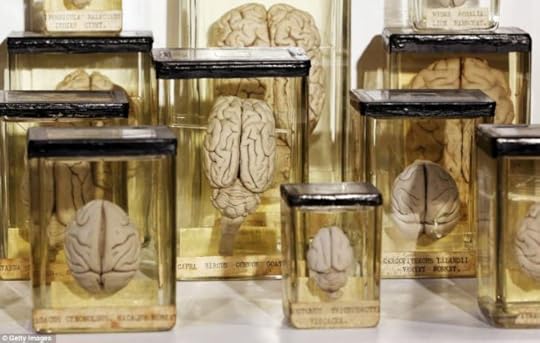
Filed under: Uncategorized Tagged: concussions, High school, parenting

January 13, 2015
In which I am called *that word*.
Oh, don’t be coy with me. You know exactly which word I am talking about.
I called my husband right after it happened. I was in tears. “A man called me the baddest word,” I said, sniveling like a little child. Enraged at the outrage of it, and enraged at my own hurt as well.
It’s just a word, I fussed at myself.
No it isn’t, my hurt fussed back.
My husband paused. “Which bad word?” he asked carefully.
“The baddest one,” I said.
Silence.
I amended. “The baddest one for a lady,” I said primly.
What came from my husband’s mouth next was a series of “Oh.”
“Oh,” he said, uttering the “Oh” of comprehension.
“Oh,” he said next, uttering the “Oh” of disbelief.
“OH!” he said finally, uttering the “Oh” of rage.
“Do you want me punch him?” he asked.
“Yes,” I said.
“I probably won’t punch him,” he said. “Plus, we don’t know who he is.”
This was true. It happened on the corner of 46th and Hiawatha, where I had walked through the wind and the cold to get medicine for my dog at the pharmacy. I had a green light and a walk sign. He nearly hit me as he tried to turn illegally through the crosswalk. I jumped backward, and he missed me by inches. I was too astonished to say anything, too terrified to register anything except relief that I wasn’t hurt. He rolled down his window, leaned across the passenger, his face was twisted and angry and hard.
“Get out of the way you stupid c***,” he said.
And then he sped away.
And I walked home, horrified.
I have been called bad names before. Sometimes deservedly so. Sometimes not. But I’ve never been as upset as I was this time around. Now, granted, I was having a rough day (my dog, my dog. everything returns to my dog). And there was the fact of my near-squishing as well. As a person of faith, I’m not particularly afraid of dying, but there is something gravely undignified in a Death By Squishing – by a horrible-looking van driven by a foul-mouthed man, no less. It wouldn’t be my preference is what I’m saying.
But why, though. Why insult the person you almost killed? I have been thinking about this for days, and I can’t figure it out. What is it about fear that makes it harder to be compassionate? What is it about doing something wrong that makes people have a harder time to show care? Why is it��so damn hard to say “I’m sorry”?
It did not occur to the driver to check for pedestrians. I get that. It did not occur to the driver that there might be someone crossing in the crosswalk on so cold a day. It was��very cold. And it was bright. I get it that mistakes can happen.
But why yell ‘stupid’. And why, why, why that other word. The baddest word. And why does that word hurt me so?
In the 30 Rock episode “The C-Word” Liz Lemon is called it by a petulant employee (the petulantest), and she tries to shake it off, but can’t. In the episode she says, “There isn’t an equivalent insult for a man,” and that isn’t entirely true – men get called “dicks” all the time, which feels like it should be the same, but strangely it is not. Perhaps it is the venom withheld from one word and piled in the other. Perhaps it is our culture’s misogynistic distain for the female body – Francis Grose, in his 1785��A Classical Dictionary of the Vulgar Tongue, defined it as “a nasty word for a nasty thing.” Indeed, even though the word was in popular usage since the 1300’s, it didn’t even show up in any regular English dictionary��until 1961, when Webster’s finally decided to use it, helpfully calling it��obscene.��
It is that, for sure.
Now, it wasn’t always so. Chaucer uses the word playfully in the Cantebury Tales. And Andrew Marvell’s “To His Coy Mistress”, plays with the word, substituting it with��“quaint” and lets the reader fill in the blanks. So how did a playful turn on joyful sexuality become the ugliest of insults. Intention? Body hatred? Lady hatred? Maybe all of those things. Maybe we can blame the Puritans. Maybe we can blame mean men in vans.
And I know people who seek to reclaim that word. To use it powerfully, lovingly, playfully.��To assert that the nastiness in the word is not emblematic of the thing described, but of the speaker himself. There is no part of me that is nasty, after all. Every part of me is a gift from my Creator, and has in it the spark of the Divine. And I can say that, and I can use that word in my own private conversations and it does not change the fact that the intention of that insult��matters. And that ugly talk is ugly talk, no matter how we try to reframe the context of our vocabularies.
There are few words in our language with this much power to shock. And hurt.
Which brings me back to the near-squishing. There is no way this person could think he was in the right and I was in the wrong. There was no way that he could have thought that I actually��was stupid for crossing the street. At a crosswalk. With a green light and a “walk” sign. So what is really going on?
He said that word to hurt me. He said that word to belittle me. He said that word to remove my humanity – to make me feel as though I did not have the right to occupy that space, to move across a street in safety in the winter. He said that word to make himself feel better. If my humanity is lessened than the potential harm is lessened too. He said that word to absolve himself. He said that word to remove me from the possibility of compassion. He said that word so as to relieve himself of the bother of caring. He said that word because his power of movement was more valuable to him than mine. He would not have said that word to a man. He likely would not have called him a d***, either. He likely would not have said anything at all. Men have the right to exist, right?
This all happened days ago. Friday, to be exact. And I’ve been stewing ever since. I have been thinking about the things I should have said, and the things I should have done.
“Did you get his license plate,” my mom asked. “Because that was illegal. You were on a crosswalk”
“No,” I said. “I didn’t even think of it. I could only be shocked.”
She shrugged. “I probably wouldn’t have either.”
And maybe that’s why. When words have the power to shock – they have more power than the word itself. They remove the impulse of action from the recipient. They pin us in place.
I hate that. I hate how powerless I felt. I hate that my instinct was to crumple up. I hate that my instinct was to flush and sputter. To feel��less than. It is a crummy feeling. The crummiest.
I’m not sure what I want out of this post. Other than to pin this experience to the great bulletin board in the sky. “See,” I say. “This is what happened. This is how I felt. Make of it what you will.”
Filed under: Uncategorized Tagged: feminism, pedestrian woes

January 9, 2015
Update on the Ancient Dog
Well, the Vet came and went yesterday, but Harper, my one thousand year old beastie, still remains. He said to us, “You know? Every time I see your dog’s name on my patient list I think, ‘Oh, god. This is it.’ And every time I see her, I think, ‘You know what? Maybe not.'”
So that’s our answer right now. Maybe not. I’ll take it.
In the meantime, we’re managing her pain and giving her fluids, in hopes that she starts eating and drinking more regularly on her own. She’s sleeping a lot, but she’s not in any kind of visible distress, which is good news.
The Vet said to us yesterday, “So, outside of the last couple days, which have been admittedly terrible, how would you describe her quality of life?”
“Well,” we said, “she eats her food and drinks her water and is super excited when someone drops something on the ground so she can taste it. She loves her yard, and loves chasing the rabbits and the squirrels. When she can see them. Which isn’t very often. Sometimes she chases nothing because she thinks that there might be a squirrel there maybe. She likes it when one of the kids takes her for a walk, and she really likes going for a hike.”
“She hikes?” the Vet said.
“Sometimes,” we said. “Not as far as she used to go, but she went five miles this summer. Slowly. With breaks. But she made it.”
“And she’s twenty years old.”
“At least.”
He listened to her heart and listened to her lungs and felt her belly and looked in her mouth. He looked at us. “Honestly, it could go either way – you never know if a dog gets it in their head to circle the drain. She might have decided that this is it. Or maybe she just feels crummy, and this is her feeling crummy. The main thing is getting her through the next couple days. But, given all that?��There’s a good chance she might��rally.”
My husband thinks he has money on her. Maybe I should put money on her.
In any case, I really appreciate all the prayers and well-wishes from yesterday. I think she heard them and I think she felt them. She’s resting comfortably right now. Is that rallying? I don’t know. I’m just trying to get through the day. And that’s what it will be for a while. One day at a time.
I told my kids that every time we think, “This is it,” with our dog (and believe me, there have been lots of those), what we feel is relief. And we should feel relief. But we also have to remind ourselves that each time this happens, it brings us closer to the��actual “this is it” moment. Our dog has lived longer than most dogs. She is older than my oldest child. She is older than my marriage. But she won’t live forever. None of us will.
And maybe that’s the point. Life is fragile, and fleeting. A dog’s life; a person’s life. We are precious because��we are fragile, and��because��our time is brief.��We mark the spot where we were and lived through our connection, our kindness, our affection, our love. Our dogs do not build cities or write policy or make war or give speeches or build bombs or write books. And yet they leave profound and lifelong impacts on the people who love them. And we treasure them forever.
“We may get to keep Harper for another day or another week or another year, but the way we remember her will be the same. She will be the bad-breathed beastie who loved you best and most. And we will hold ourselves lucky to know and have known her.”
And really, that’s what any of us hope to be known for. The one who loved best and most. The one who was kind. The one who cared. The one who was ever present with an open heart. So that is what I carry with me today. A bit of Harperishness in my heart.
Filed under: Uncategorized

January 8, 2015
Stay.

My dog is bathed and dried and wrapped up and next to the heating vent. I got her to eat a little this morning. She drank some watered-down unsalted beef broth (organic, because she is worth it), and it felt like a miracle. I’m sitting next to her, my computer on my lap, pretending to write my book, but really I’m just looking at my dog. Keeping close.
“Stay,” I say.
She thumps her tail.
“Stay,” I say again. She closes her eyes and groans she pushes her nose against my leg with a sigh.
When we live with dogs, we have a set of words that our animals are trained to obey on cue. We say, “Sit”, and they sit. But that isn’t always what we mean. When Harper was young – a gnarly, snarly, scruffy little street dog, narrowly escaping Death By Dogcatcher – I would say “Sit” and it would mean something very specific. “Sit” meant “Oh My God Stop Being Such A Crazypants, You Crazypants.”��Sit meant “No, You May NOT Remove The Mailman’s Leg!” or it meant, “Bashing Your Head Against The Door Doesn’t Actually Open The Door!” or it meant, “If You Don’t Stop Barking At That Squirrel, I Might Actually Explode The House And Then You Will Be Sorry.”
Later, when we had kids, “Sit” meant “Keep Close To The Baby,” or it meant, “Stop Pulling On The Leash Or I Might Accidentally Knock Over The Stroller,” or it meant, “No, You May Not Climb Up Onto The High Chair Tray; You Must Wait For The Baby’s Food To Fall.”
And later than that, “Sit” meant, “Yes I Know Our House Is Overrun With Crazy Boys; Sit And Lean On Me And Know You Are Safe.” “Sit” meant “Everything Is Fine, I Promise.”
Today, she is having trouble pulling herself into a sitting position. She did it for a little bit this morning. “Sit,” I said, and I meant, “Please.”
“Sit, honey,” I said.��Please, oh please.
“You can do it,” I said. Oh please, oh please, oh please.
She did it. For a little while. But eventually, her legs splayed out in front of her and she pressed her belly to the ground. She sighed.
When she was young I used to tell her to stay. It took a while for that one to stick. She was a ranger – it’s how she came to us in the first place. And no matter how tightly we had our fences and how high, she managed to find her way out of them. Usually at night. She’d trick us into letting her out claiming she had to pee (what a trickster!) and two minutes later she’d be gone. We’d hear her scratching at the door in the middle of the night (she’d climb over the fence), and there she’d be – shiny coat, bright eyes, a wanderer’s grin about her mouth. Sometimes she’d have something with her – a ham bone or a squeaky toy. We figured she had regular folks that she’d pay visits to.
“Stay,” we told her. What we meant was, “We’re worried about you. We know you’re smart and savvy and no car would ever squish you and no street dog would ever best you in a fight. We know you’re street smart and gnarly and canny. We know you can take care of yourself. But we miss you when you’re gone. And we need you.”
“Stay,” we said again and again and again. And, finally, she stayed.
Now “Stay” means something else.
She is pressing her back against my leg. I am leaning against the bookshelf and it is uncomfortable. I should get a pillow but I don’t want to. I don’t want to leave her.
“Stay,” I say. She thumps her tail.
Don’t go, my heart says.��Please don’t go.
She thumps her tail.
“Stay,” I say again. “Stay, stay, stay.”��Don’t go, don’t go, don’t go.
I love you, thumps her tail.
“I love you, too,” I say. “Don’t go,” I say out loud.
She thumps her tail.
I might have to,��she says.
The vet is coming at three. I’d appreciate a kind thought or a prayer, if you happen to have an extra one lying around. Harper would appreciate it too.
Filed under: Uncategorized Tagged: aging, Harper, loving old dogs

December 30, 2014
2014 in review
The WordPress.com stats helper monkeys prepared a 2014 annual report for this blog.
Here’s an excerpt:
The concert hall at the Sydney Opera House holds 2,700 people. This blog was viewed about 37,000 times in 2014. If it were a concert at Sydney Opera House, it would take about 14 sold-out performances for that many people to see it.
Click here to see the complete report.
Filed under: Uncategorized

December 18, 2014
I Never Understood Why My Mom Was Crazy During the Holidays Until I Became a Crazy Mom During the Holidays

Like many people, I do not choose to engage in the annual spending orgy of Black Friday, opting instead to celebrate Buy Nothing Day on the Friday after Thanksgiving. And I recommend it, really – spending the day going on a long, foresty hike with loved ones as we vainly attempt to walk off the over-eating of the day before. And puzzles. And leftovers. And more puzzles. Always a good time. Also, it’s good for me to take a breather in the midst of holiday madness.
Because, this time of year, and every year, I go mad. Completely, totally, bonkers, bananas, loony-toons, cookoo-for-cocopuffs, both Hatter and March Hare, mad. And, if I was a betting man (or, in my case, woman), I’d wager that you do too. And it isn’t your fault. It’s the damn holidays.
The holidays are crazy-making. The expectations. The lunatic scheduling. The jittery children. The lists. The shopping. The cupon-cutting. The oppressive darkness. The cold. The near-constant phone calls. And the pressure on parents (and perhaps it’s unfair of me to assume that the pressure is worse on moms. It feels to me like it is, but since I am not a dad, and because the dad in my familial context is the coolest of cool cucumbers, it is difficult for me to say) to make things just so. To make things perfect. We become the guardians of the happiness of every person on earth, and god help us if we fail.
Instead of the normal shopping-tastic Black Friday with its door-busters and Walmart fistfights and television sets for pennies on the dollar and whatever, I have in its place, every year, my own personal Black Friday. My Black Friday is far worse than everyone else’s. I’m not saying that to brag. It’s just the truth. It begins the night after Thanksgiving. And it happens in my dreams.
This is my Holiday Mom Black Friday Anxiety Dream:
I wake up in my bed because of the thunder of feet as my children stampede into my bedroom. (Now, if I ever attain the gift of lucidity while dreaming, this should be my first inkling that I am, in fact, dreaming. My daughters haven’t woken up earlier than me since they were five. Leo, my son, still does wake up early – usually around six or six thirty in the morning, but he never comes into my room. Instead, he goes downstairs and puts water in the electric kettle and puts a tea bag in my favorite mug and either plays his ipod or draws until someone comes down and hangs out with him. And by “someone”, I mean me.) (Also, I should know I’m dreaming because my kids are filling the room. I only have three. And while it often feels like there are masses of them – like I am Girl Genghis Khan, mothering my massive Mongol Horde – I do understand that this is only a stress-induced perception augmentation. In my dream, however, I did not have three children. I have hundreds. Hundreds. And I truly love them all.)
“Mom!” my hundreds of children cry. “Mom! Mom! Mom!”
“What!” I say, wrenching myself out of sleep. I rub my eyes and smile.
“Can you believe it’s Christmas already?” my hundreds of children sigh.”Isn’t that wonderful?”
At this I leap out of bed, my mind and body racing. Christmas? I think in a panicked blur. Christmas already? I’m not ready! I don’t have a tree! I haven’t decorated! I haven’t made the Christmas cards! I haven’t bought any presents! There is nothing for Christmas breakfast! Or dinner! And oh god oh god oh god! I am out of milk!
It’s the milk that gets me every time. Because if there is no milk, then we can have no tea. And if there is no tea, then the thin threads tethering my mind to any semblance of sanity sever one by one.
This is where I wake up, dripping with sweat. This happens every night. Every single night. Starting the night after Thanksgiving and lasting until Christmas morning.
And I think about famous holiday anxiety dreams – Joseph seeing the possible stoning of Mary and having an angel give him what-for, or Ebenezer Scrooge and his three ghosts – and I start to feel anxious about my anxiety dreams. Because at least those guys had dreams that did something. Safeguarding the childhood of the Lord, for example. Or giving an old geezer his heart back. But what do my dreams do? Besides making me into some kind of Mother Goddess, which, frankly is not that bad. I wouldn’t mind mothering a horde, if truth be told. Still, this dream gives me no insight, no perspective, no world-saving change. It just makes me crazy.
And it’s too bad, because this season is wonderful. We are pink-cheeked and singing. We are thinking of the people who matter to us and wondering what would make them happy. We are spending more time at church, at one another’s houses. We are paying attention to snowflakes and the scent of pine and cookie recipes. We are lighting candles. We are making things. Perhaps I am waking up too early from my dream. Perhaps, in my anxiousness, I’m not asking the fundamental next question. “So what?” I should be asking. And then I should hug my kids.
To the rest of you moms and dads who are, right now, hanging onto your sanity by your fingernails, I raise my glass to you. May your goblets flow with wine, and may you be given chocolate for every meal. May your days be filled with sweetness and your nights be filled with song. And may you, in this most blessed of seasons, be filled with light: light that conquers darkness; light that vanquishes misunderstanding or division or despair; light that is conceived, gestated and born, again and again, into our arms. Happy Holidays, my dears. To all of you.
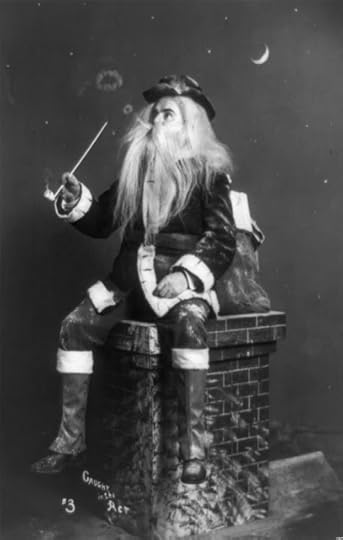
Filed under: Uncategorized

December 10, 2014
Happy Birthday Ada Lovelace, the Enchantress of Numbers

Oh, Ada! Poetical Scientist, Metaphysical Analyst and genius of Mathematical Arts. Mother of programmers. Midwife of computers everywhere. Daughter of a libertine poet and a self-centered socialite/ strict moralist (depending on the day), little Ada proved once and for all that a person can grow and thrive and wonder and create glittering futures despite the inconvenience of sub-standard parents.
After Lord Byron abandoned his family, and Annabella Millbanke abandoned little Ada into the arms of her doting grandmother and a squadron of tutors, Ada grew up curious and intellectually ravenous. Her mother, seeing the ravages of poetry (and laudanum) on her ex-husband, decreed that Ada’s mind would be unpoisoned by romantic excess, and would, instead, be guided by mathematics and science, and filled the halls of the old family home with the best tutors that money could buy.
When she was twelve years old, she decided that she would learn how to fly. She constructed wings out of silk and paper and wire and feathers. She composed a book called Flyology, documenting her theories of human flight, her study of birds, her analysis of the tools she’d need to make a journey across the country by the most direct of routes.
When she was seventeen years old, she fell in love with her tutor, and attempted an elopement. This was thwarted by a cadre of her mother’s friends and relatives – women she referred to as “The Furies”.
When she was eighteen, she made her debut and dazzled society with her beauty, intellect and charm.
When she was twenty, she was married – though not without scandal. She enjoyed a relaxed enjoyment of her own sexuality, and had several lovers outside of her marriage, much to the shock of people around her. Their shock didn’t seemed to bother her much, and did nothing to dissuade her.
She loved the integration of mathematics with the imagination, and often saw science and poetry as being inextricably linked. She felt that differential calculus was, in its foundation, poetical in nature. She wrote:
I may remark that the curious transformations many formulae can undergo, the unsuspected and to a beginner apparently impossible identity of forms exceedingly dissimilar at first sight, is I think one of the chief difficulties in the early part of mathematical studies. I am often reminded of certain sprites and fairies one reads of, who are at one’s elbows in one shape now, and the next minute in a form most dissimilar.
She loved the world, both the seen and the unseen, and valued imagination and intuition as highly as she valued computation and analysis.
She loved to gamble – the challenge, the reward, the complex analytical and mathematical computations necessary to do well. She attempted to create a mathematical model that would allow her to reduce her risk in placing extremely large bets. Unfortunately, the model was not successful, and a shame-faced Ada was forced to admit to her husband the vast fortune that she had just lost.
When she was twenty-nine, thanks to her new interest in electricity, magnetism and phrenology, she attempted to create a mathematical model for the working of the emotional mind – “a calculous for the nervous system.”
In 1833, she met Charles Babbage and saw his Difference Engine – the world’s first automatic calculator, and saw his plans for the Analytical Engine – the world’s first computer.. The two became instant friends, and were both highly enamored of the other’s intellectual prowess. They spent hours and hours on long walks discussing mathematics, and even longer hours writing letters back and forth, discussing theory and ideas. In a letter, Mr. Babbage wrote of her:
“Forget this world and all its troubles and if possible its multitudinous Charlatans—every thing in short but the Enchantress of Numbers.”
Though the Analytical Engine was years away from production, Ada was deeply involved in the development of the design, and wrote extensive and sophisticated analyses of the potential applications of the invention. She wrote the programs to demonstrate what the machine could do, going beyond even Babbage’s limited ideas. Not only was she able to see the implications of the machine, she was able to postulate further modifications and advancement. She was, undeniably, the prophet of the computer age.
Happy Birthday, dear Ada. I write these words on a computer, and am sending it to a massive network of computers so it may be read on still other computers. We would not be here without you.

Filed under: Uncategorized Tagged: Ada Lovelace, feminism, Women in Computing

December 9, 2014
Items of note:

Today, once I usher my children off to school (by car, by train, by school bus; but none, unfortunately, by flock of birds, which is a shame, because that would be a fine, fine way to go to school), I shall be initiating my trusty old Mac Freedom and letting the internets go dark for a bit. (If you are a writer, then you probably already know about these internet-busting tools, likely you use them all the time. If you are not, then you are likely mystified by them. My darling husband, for example, has no idea why such a thing would be necessary. “Why,” he asks, “would you buy a thing to make the other thing that you bought not work according to the specs that you claimed you wanted in the store? It makes no sense.” Perhaps, my darling. But neither does making a living telling stories, and I do that now don’t I.) But before I do, I have some things to share:
I have an essay running today called “Strange Birds”, over at Nerdy Book Club. If you have a moment, I’d love to know what you think of it.
The Witch’s Boy has been out for quite a bit now, but I am still getting nice reviews. Here, for example. And here, and here, and here.
And it’s list season. My book has been kindly named on Publisher’s Weekly Best Books of 2014, as well as “best-of-the-year” lists from Kirkus and Amazon.
As I have mentioned here before, I will be co-hosting The 90-Second Newbery Film Festival on February 28. And if you are a film-making-kid, or you are a teacher helping kids do this for a project, and you were worried about the looming deadline to turn in your AMAZING book trailer of a Newbery-winning book, WORRY NO MORE! The deadline has been extended to January 16! So, for those of you who can do math, that means that you have . . . well. Some days. And an entire Christmas Vacation. So, get cracking!
And that’s it. And now I must return to the stories roosting in my mind – that great squawking, preening, cooing, fluttering flock. Perhaps they will peck out my heart. Or perhaps they will fly me into the stars. Really, at this point, it could go either way.
Filed under: Uncategorized Tagged: Childrens literature, fiction is my job


